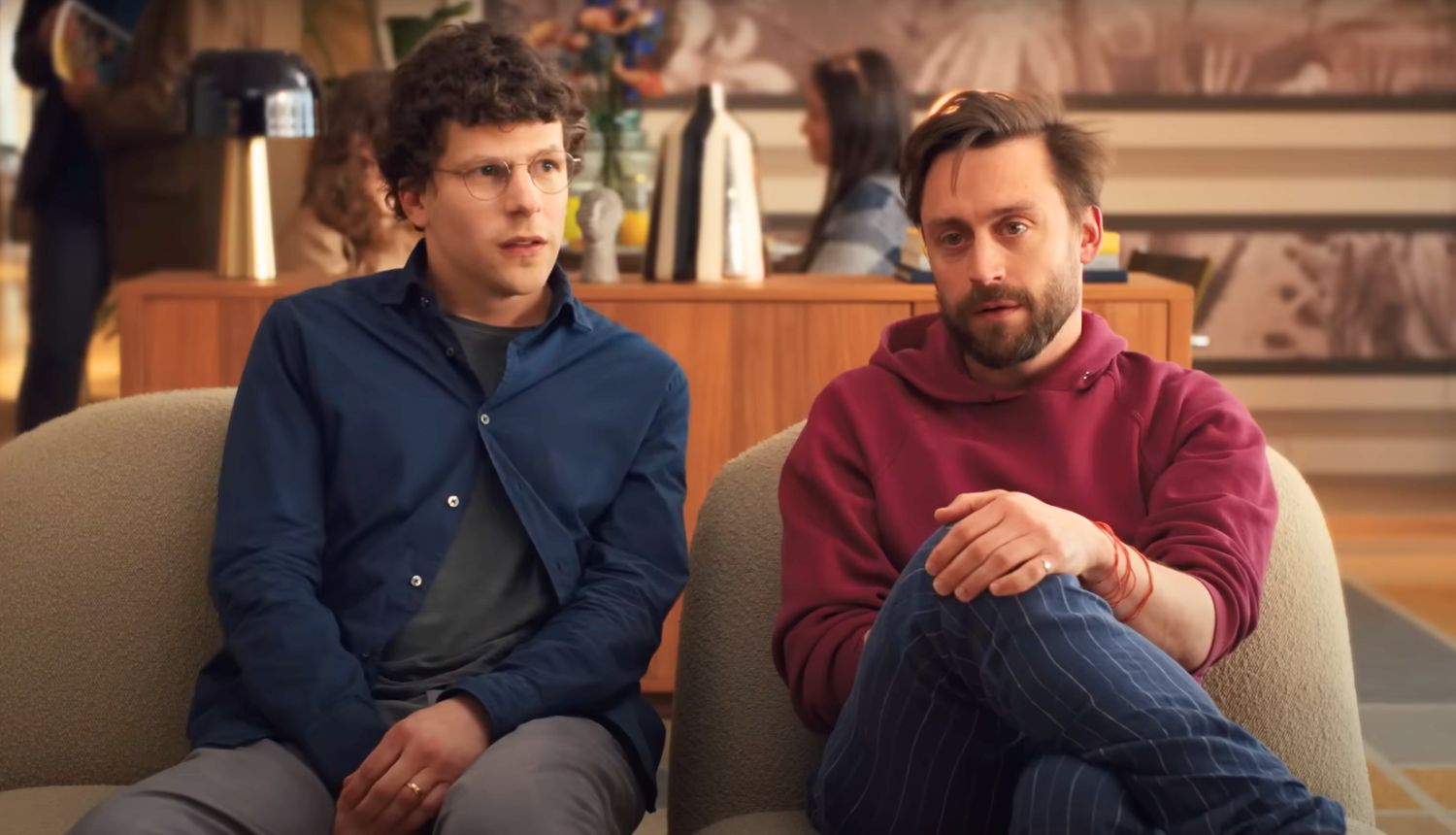I’m glad A Real Pain wasn’t Jesse Eisenberg’s first movie. A film like this requires a delicate touch that most first time directors don’t quite have yet, and need a first feature to get all their treacly bad habits out of their system. So….thanks When You Finish Saving the World, Eisenberg’s first feature film? You inartfully exist to be forgotten…so A Real Pain could really hit hard and be remembered for a long time.
After losing their grandmother a few months ago, cousins David (Jesse Eisenberg) and Benji (Kieran Culkin) Kaplan finally find collective time to take their roots trip to Poland, where their Jewish grandmother left after World War II. The pair join British historian James’s (Will Sharp) tour group, which includes a divorcee Marcia (Jennifer Grey), midwest couple Diane (Liza Sadovy) and Mark (Daniel Oreskes), and Rwandan Jewish convert Eloge (Kurt Egyiawan). This tour, through some of their grandmothers history as well as some of the worst parts of human history, takes its toll on the boys, with the pinned up David and emotionally connected Benji forced to confront all sorts of new, complex feelings towards themselves and each other.
A Real Pain for the characters is not really one for the audience. This movie is excellent, thanks to Eisenberg’s clear vision for the story he wants to tell. A more crude pitch for this movie is “Holocaust comedy” which Eisenberg’s writing somehow threads the needle on. His script smartly juxtaposes the issues David and Benji are going through compared to these superinhuman ones their grandmother had to face. Eisenberg mines wonderfully specific comedy through that lens, while also crafting characters that feel very honest and real at the same time, as to not cheapen the audience experience. Because, when confronted with real horrifying places like a concentration camp tour, Eisenberg smartly withdraws the early humor to let the audience and his characters take in the deep hurt and cruel power of that awful place. With no jokes to rely on audience attention, we stay and are riveted because of the specific Polish setting, and the characters we’ve grown attached to, happy to be unhappy with them.
The two leads could not be more perfectly cast either. Kieran Culkin rightly is getting accolades for what he does here. His Benji is all raw nerve, barely holding anything back as he defiantly says whatever he’s feeling in his heart at the time. Culkin nails his biggest task of making all that chaotic energy feel like a real person and not some script contrivance, otherwise the movie would fall apart like a house of cards. Jesse Eisenberg the director rightly cedes the flashier role to Culkin, while Eisenberg the actor takes the David role: a pent up, rambly neurotic he’s mastered over his career. Jesse finds new beats he’s never really hit before playing David, arguably having the movie’s biggest emotional moment during a group dinner, turning a “thankless” part into something much more interesting and elevating Culkin’s performance at the same time. It’s that sizzling repartee between the two of them that the movie is built upon, and that character clash elicits not just all sorts of laughs, but a surprising well of complex human emotions through a blistering dialogue pace.
By the end, you feel A Real Pain of going on that roots trip with David and Benji. Such is the power of Jesse Eisenberg’s story, and the deep well of humanity underneath it. I’d say I had the time of my life, but Jennifer Grey would give me those hungry eyes and eat me alive, putting me, the baby, in the corner. What a strange sentence there, I wonder where that came from?

